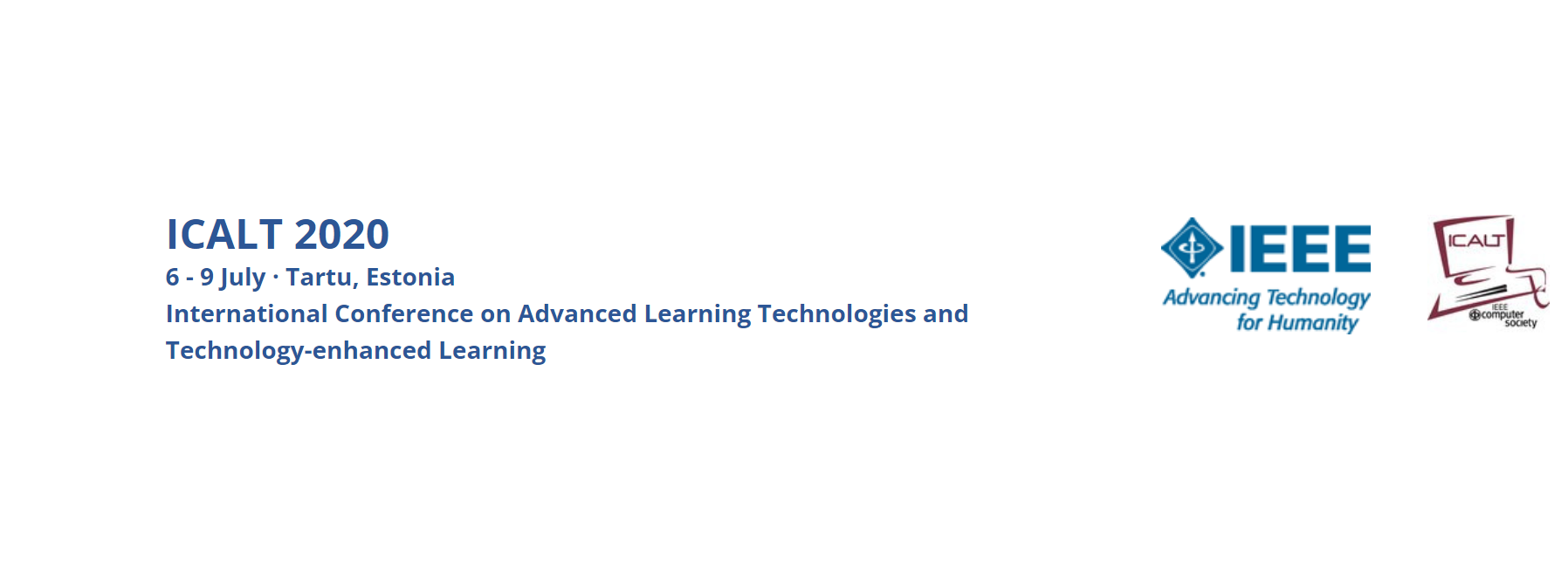
Track 2. Adaptive and Personalised Technology-Enhanced Learning (APTeL)
Track Program Chairs
Elvira Popescu
University of Craiova, Romania
(CO-ORDINATOR)
Sabine Graf
Athabasca University, Canada
Sharon I-Han Hsiao
Arizona State University, USA
Kyparisia Papanikolaou
School of Pedagogical & Technological Education, Greece
Yacine Atif
University of Skovde, Sweden
Track description and topics of interest
Advanced learning technologies keep transforming what people learn, how they learn it and the ways they access learning opportunities in formal and informal contexts. As the educational landscape evolves, learning gets more structured around flexible curricula that have to accommodate the needs of diverse student audiences, and educational organizations which offer services for accessing educational content and resources through a variety of platforms, devices, and learning contexts. In this framework, adapting the educational experience to learners’ preferences, needs and background becomes critical. The challenge concerns providing an alternative to the “one-size-fits-all” approach in designing learning technologies, taking into consideration individual differences among learners and the various contexts within which learning will take place. The aim is to maximize learner satisfaction, learning retention and efficiency of the learning process. Adaptation can take place both at individual and group/community levels, whereby intelligent and adaptive technologies are integrated to empower socially-grounded learning experiences.
APTeL@ICALT2020 explores different dimensions of adaptation and personalization, including learner modeling and adaptation mechanisms, as well as techniques, designs, implementation approaches, and experimental validations. A main issue that is expected to be addressed in this forum is the impact of adaptive and personalised learning environments in real educational (formal or informal) contexts, focusing on how these environments can be integrated in the educational process in order to enhance and promote efficient personalised learning cycles. “What can we adapt to?”, “What can be adapted?”, “How can we collect and process relevant data?”, “What is the impact of adaptation?”, “How technology-enhanced adaptive environments may promote personalized learning in real contexts?”, “How are learners profiled and how do they perceive personalization?”, “How can we support educators develop personalized content and resources?”, “How can interaction data collection, analysis and/or visualization be adapted to identify learner needs or enhance personalized learning experiences?”, “How can learner communities benefit from personalisation?” are some important questions that need to be addressed.
Topics of interest cover various adaptivity and personalization issues in technology enhanced learning, in particular:
- Personal learning environments (PLE)
- Intelligent learner and group modeling
- Adaptive learning methods and techniques
- Adaptive collaborative learning
- Personalized mobile learning applications
- Adaptive educational games
- Adaptivity and personalization in MOOCs
- Cognitive, motivational and affective aspects for personalization
- Measurement and evaluation in adaptive learning environments
- Practice and experience sharing
- Learning and teaching with adaptive and personalised learning environments
- Personalized learning design
- Personalized learning/teaching analytics
- Personalized support for communities of learners
- Context-aware models for personalized learning
- Adaptive learning in pervasive computing environments
Track Program Committee
Marie-Helene Abel, University of Technology of Compiègne, France
Maria Bielikova, Slovak University of Technology, Slovakia
Mohamed Chatti, University of Duisburg-Essen, Germany
Chih-Ming Chen, National Chengchi University, Taiwan
Irene-Angelica Chounta, University of Tartu, Estonia
Mihaela Cocea, University of Portsmouth, UK
Carrie Demmans Epp, University of Pittsburgh, USA
Darina Dicheva, Winston-Salem State University, USA
Agoritsa Gogoulou, National and Kapodistrian University of Athens, Greece
Mirjana Ivanovic, University of Novi Sad, Serbia
Mike Joy, University of Warwick, UK
Milos Kravcik, DFKI GmbH, Berlin, Germany
Mart Laanpere, Tallinn University, Estonia
Monica Landoni, USI, Switzerland
Élise Lavoué, University Jean Moulin Lyon 3, France
Mirko Marras, University of Cagliari, Italy
Carolina Mejia Corredor, EAN University, Colombia
Antonija Mitrovic, University of Christchurch, New Zealand
Alexander Nussbaumer, Graz University of Technology, Austria
Alexandros Paramythis, Contexity AG, Switzerland
Kai Pata, Tallinn University, Estonia
Francesca Pozzi, CNR, Italy
Ma. Mercedes T. Rodrigo, Ateneo de Manila University, Philippines
Vasile Rus, The University of Memphis, USA
Ulrik Schroeder, RWTH Aachen University, Germany
Sergey Sosnovsky, Utrecht University, Netherlands
Marco Temperini, Sapienza University of Rome, Italy
Christos Troussas, University of West Attica, Greece
Maomi Ueno, University of Electro-Communications, Japan
Elle Yuan Wang, Arizona State University, USA
Dunwei Wen, Athabasca University, Canada


